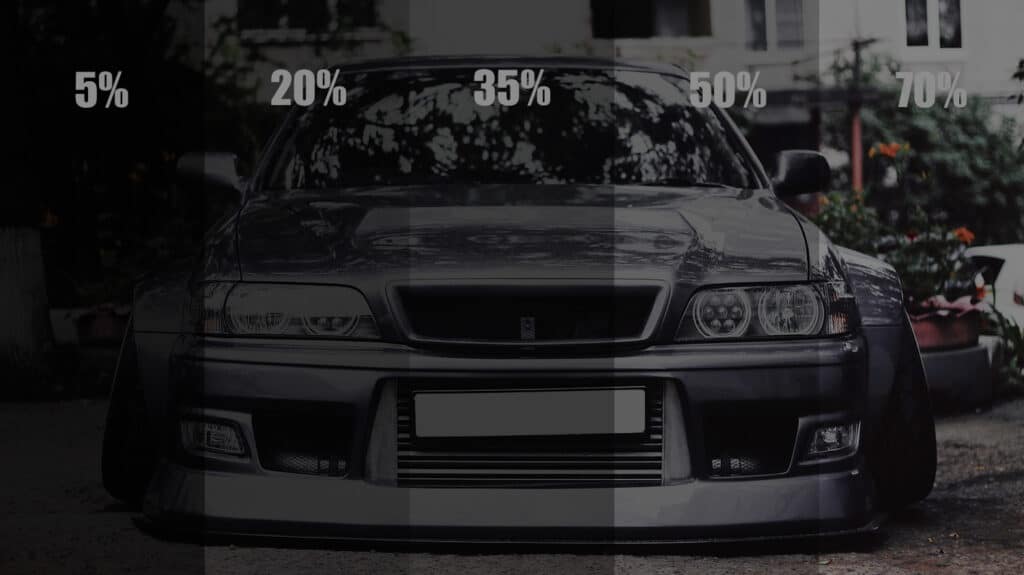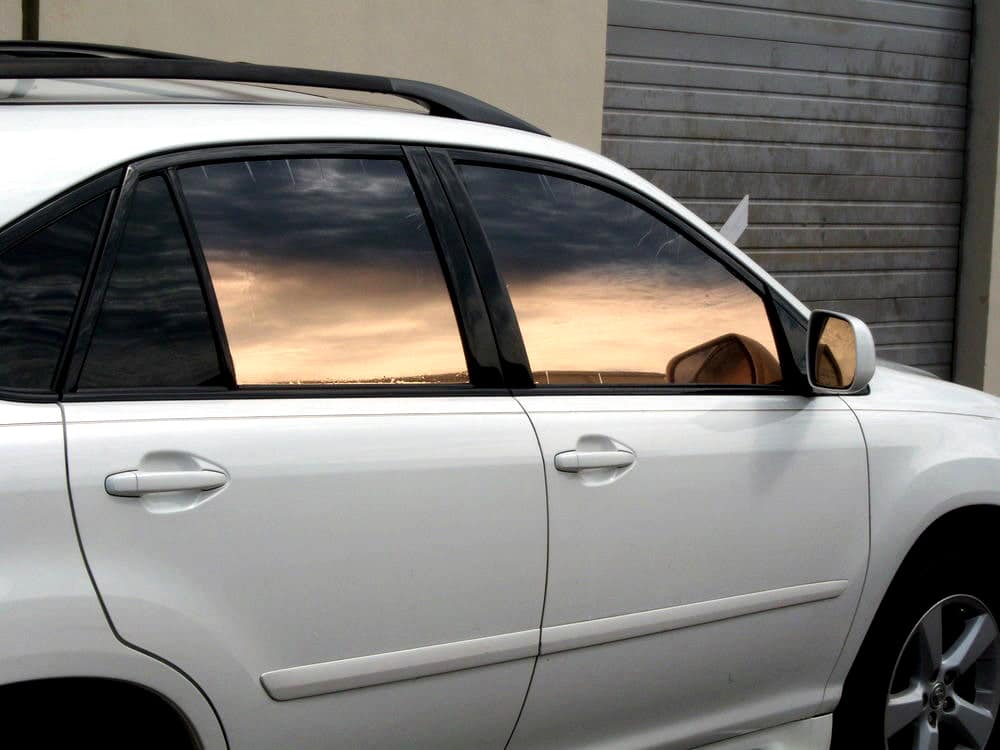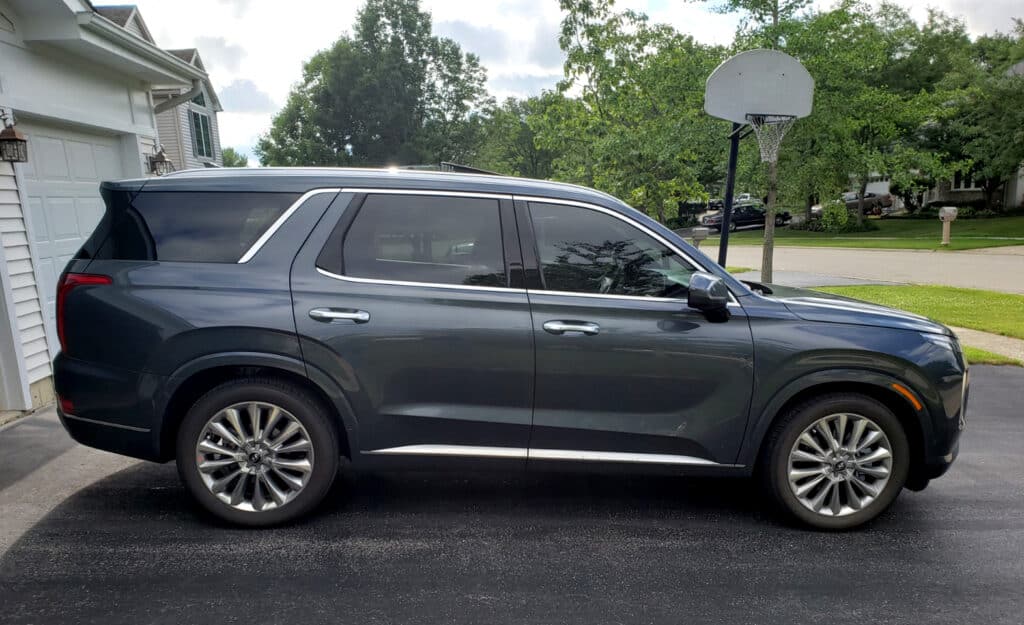Window tints offer a lot more than just aesthetic appeal. They provide privacy and protection against glare. The latter is especially useful in the snowy winters of New Jersey.
Tinted windows also help to protect the interior of the vehicle, like the dashboard and seats, which tend to fade and deteriorate due to prolonged exposure to UV rays.
States across the country have legal limits on window tint transparency. In this article, we’ll discuss the laws in New Jersey.
Is Window Tint Legal in New Jersey?

New Jersey has very specific rules regarding car window tints. While most states have very permissive laws, New Jersey’s stance on the legality of window tinting is very strict.
The New Jersey tint law was implemented in 2003. It states that you can tint your rear and passenger side windows, but there are restrictions on tinting the windshield and driver’s side windows.
These laws must always be followed. If your window tint falls outside the stipulated guidelines, then you’ll definitely get pulled over at some point and you will have to pay a hefty fine.
If you have a medical condition that requires you to use window tint of a certain kind, then the state will offer waivers for the same. Below you will find all the necessary details regarding legal tints in NJ.
Permitted Window Tint Darkness

Tint darkness is measured in percentages, more specifically with the help of a unit called visible light transmission or VLT.
This unit is an excellent indicator of the amount of light that is allowed to pass through a window and the applied film. It is important to choose the right tint darkness both for your safety and so you can stay on the right side of the law.
Windows tints come in varying levels of darkness ranging from 70% to 5% VLT. The higher the percentage, the lighter the tint is. For example, 5% VLT is a significantly darker tint than a 70% VLT tint.
Find below the legally permitted VLT levels.
Sedans

Windshield: Installing tint is not permitted unless you have a medical waiver.
Driver-side windows: Tinting not permitted unless you have a waiver.
Passenger-side windows: No limit.
Rear window: No limit.
SUVs and Vans
Windshield: Installing tint is not permitted unless you have a medical waiver.
Driver-side windows: Installing tint is not permitted unless you have a medical waiver.
Passenger-side windows: No limit.
Rear window: No limit.
Acceptable Tint Reflection
Some window tints are designed to reflect incoming light. This feature helps to reduce glare and heat inside the cabin.
Note that there is a difference between tint transparency and reflection. Transparency measures the darkness of the tint while reflection has to do with how much light the tint can reflect.
The more reflective your tint is, the harder it’s going to be to see inside your car from the outside.
Sedans
Windshield: Tinting is illegal.
Driver-side windows: Tinting is illegal.
Passenger-side windows: Non-reflective only.
Rear window: Non-reflective tint only.
SUVs and Vans

Windshield: Tinting is illegal.
Driver-side windows: Tinting is illegal.
Passenger-side windows: Non-reflective tint must be used.
Rear window: Non-reflective tint must be used.
Other New Jersey Tint Rules You Need to Know
- Side mirrors: If the vehicle’s rear window is tinted, it needs to have dual side mirrors.
- Colored tint: There is no explicit ban on colored tints.
- Window tint certification: In order to sell tint film, manufacturers are not required to have it certified.
- Certified sticker: Owners are not required to use a certified sticker to identify the legality of the tint.
- Medical exemptions: In case of medical conditions relating to light exposure, the state offers a waiver for special tints with as low as 35% VLT.
- Fine for violations: First-time offenders will be charged up to $1,000 in penalties. The second and subsequent offenses will be fined up to $5,000.
State of New Jersey Info

New Jersey shares borders with New York, Pennsylvania, Delaware, and the Atlantic Ocean.
It is among the original 13 states of the United States.
While it is the fourth smallest in terms of area, it ranks as the 11th most densely populated state in the country.
Population: 8,864,590
Capital: Trenton
Registered vehicles: 6,006,247
Total lane miles: 85,108
Number of highways: 10
Tint law references: NJ MVC | Law and Public Safety

